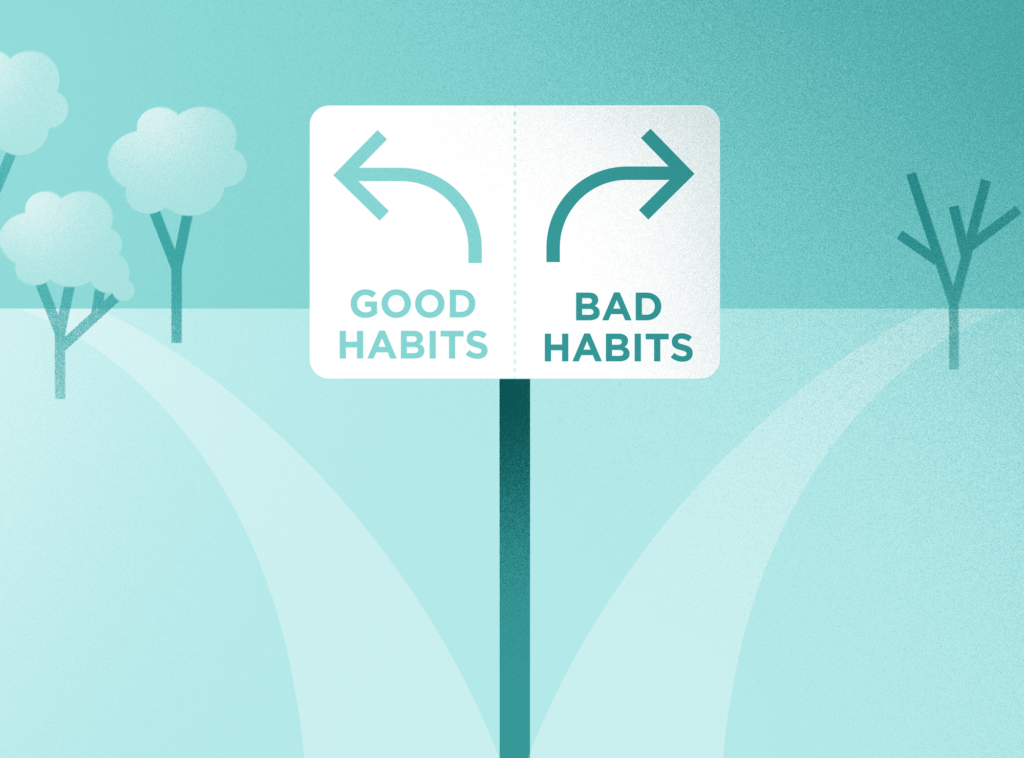
I’m a creature of habit.
When I wake up, I go to the bathroom sink, fill the orange plastic cup next to it with water, drink it, brush my teeth, pad downstairs, turn on the electric kettle, grind coffee, and check my email while waiting for the water to boil….
This is a pretty complex routine, but I’ve repeated it so often that it’s second nature.
You probably have your own morning ritual, and it surely differs from mine (unless you, too, are still using the unbreakable cup you bought at Ikea for your toddler ages ago).
What we have in common is that we’re getting through the opening moments of the day on autopilot.
It turns out that nearly half of what we do, think, and feel in the course of a day is habitual.
I don’t consciously think to myself, “Now I should fill up that orange cup with water.” I just do it. And that means I can, while getting through my morning routine, do more useful things with my brain, like think about what I’m going to write about in my next Tip of the Week.
More than a century ago, the great psychologist William James speculated:
Our virtues are habits as much as our vices. All our life, so far as it has definite form, is but a mass of habits—practical, emotional, and intellectual—systematically organized for our weal or woe, and bearing us irresistibly toward our destiny, whatever the latter may be.
More recently, Wendy Wood, the reigning expert on the science of habit, has discovered that James is exactly right. In her research, she’s found no correlation between being a creature of habit and the quality of your character. Everyone is a creature of habit. What matters isn’t whether you have habits (you do) but whether those habits are good or bad.
My bad habits include getting on my phone when I get in the car with my husband (which annoys him), chewing with my mouth open (which annoys my daughters), and grinding my teeth when stressed (which annoys no one but my dentist, who says I will soon need a mouth guard, which will be annoying).
Since habits are scripts we follow unconsciously, you may be wondering how to get a handle on them. Will there ever be a day when, reflexively, I close the car door and turn to my husband to ask how he’s doing? Can I learn to chew with my mouth closed? Will I ever break my habit of grinding my teeth?
Try reading Wendy’s new book, Good Habits, Bad Habits. With Wendy as your guide, put scientific insights to work, harnessing the power of trigger cues, repetition, and reward to help yourself—and the young people in your life—develop virtues and diminish vices.
With grit and gratitude,
Angela
